Skin: Eczema and itchy skin (ages 8-10)
Good Skin Knowledge lesson plan
Time: 45 min
Objective
Students will be able to:
Explain the basic cause for eczema
Identify what a “trigger” is
Learn that eczema is a common condition
Learn at least one way to treat eczema
Materials
Assessment
During Guided Practice, check for understanding through asking questions/repeating terms throughout exercise.
During Closing, assess understanding of material by evaluating how students answer review questions.
Opening
3 minutes
Ask students if they can name any super heroes. If students respond, ask what makes them super heroes/what their jobs are. If students are unresponsive, name a few super heroes and ask what their jobs are.
Begin to transition into topic: Today we are going to talk about our bodies’ super hero, the immune system, and how it can get a little crazy and try to protect us from bad and good things—which can cause something called eczema.
Introduction to new material
20-25 minutes
Materials: Eczema and Immuno handout
Explain eczema. Have students read sentences from Eczema and Immuno handout, and after each sentence on handout, further explain using information below:
Our body has a super hero called Immuno [Immune-o]. This super hero helps fight off infections, but sometimes he gets really excited and starts to fight off the good stuff too.
This can irritate our body by causing itchy skin.
Immuno needs to sleep, so when he is resting, our skin doesn’t itch. But sometimes, something will wake him up suddenly and he freaks out, overreacts, and tries to fight it off, causing itchy skin and even a rash.
These things that wake up Immuno are called triggers.
Triggers are not necessarily bad guys, but we should try to avoid them if we have eczema so we don’t wake up Immuno. You should check with a doctor to see what your triggers are if you have eczema, but some common triggers are:
Soap
Sweat
Dust
Juice
Scratchy clothes
Make sure you don’t scratch that itchy skin! It will keep Immuno awake and fighting, causing your skin to get even itchier—maybe even causing an infection.
Ask, “How do you know if you have eczema?” You should see your doctor to be diagnosed because there are different kinds of eczema, but it can come in many forms and is very common.
You might have red scaly bumps that feel rough and dry.
Your skin might ooze.
Or you might not see anything at all!
But don’t worry, eczema is NOT contagious, and you can help stop the itching by avoiding triggers and using (depending what your doctor and parents say):
Creams/ointments
Pills
A soft, cool wet towel if you have eczema on your eyes
Light therapy
Having eczema isn’t weird. It’s actually very common. As many as 1 in 10 kids have it, and some say 1 in 5 kids have it. It’s nothing to be ashamed of. In fact, it means your Immuno is extra protective
Closing
1-2 minutes
Say, “So let’s review.” Ask some of these questions:
We have an immune system, or Immuno; what’s its job? Fight off bad things like germs and sicknesses
What happens when Immuno meets a trigger? It overreacts and causes itchy skin
What are some types of triggers?
Soap
Sweat
Dust
Juice
Scratchy clothes
What happens if we keep scratching our skin? It stays itching/Immuno stays awake.
What are some things we can use to help relieve the itchiness
Creams/Ointments
Pills
Cool wet cloth
Light therapy
Who should you see if you think you have eczema? Parents/doctor
Is it weird to have eczema? No! It’s really common.
Is eczema contagious? Nope!
Say, “Now you know more about eczema, and you might even realize you have it. Remember, it’s not weird and is not contagious. Talk to your parents if you think you have eczema, and they can look at it and take you to the doctor if needed.”
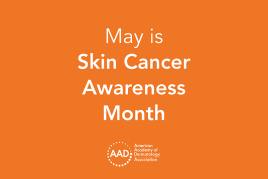 Think sun protection during Skin Cancer Awareness Month
Think sun protection during Skin Cancer Awareness Month
 How to care for your skin if you have lupus
How to care for your skin if you have lupus
 Practice Safe Sun
Practice Safe Sun
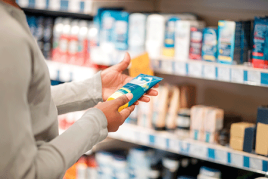 Sunscreen FAQs
Sunscreen FAQs
 Fade dark spots
Fade dark spots
 Hidradenitis suppurativa
Hidradenitis suppurativa
 Laser hair removal
Laser hair removal
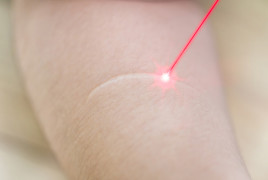 Scar treatment
Scar treatment
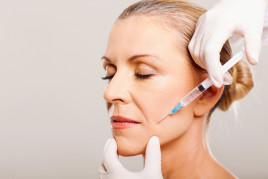 Botox
Botox
 Kids' camp - Camp Discovery
Kids' camp - Camp Discovery
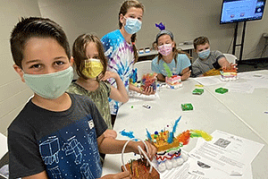 Dermatologist-approved lesson plans, activities you can use
Dermatologist-approved lesson plans, activities you can use
 Find a Dermatologist
Find a Dermatologist
 Why choose a board-certified dermatologist?
Why choose a board-certified dermatologist?